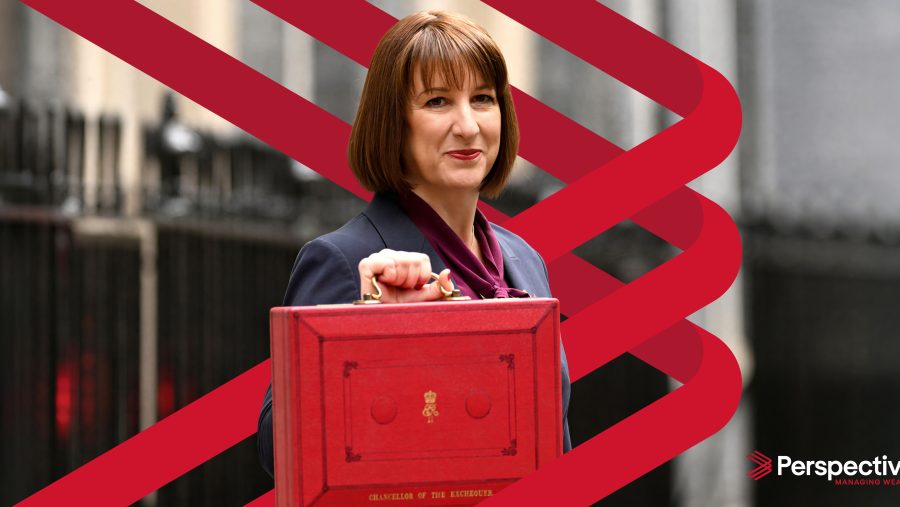Published
8th November 2021
Categories
General News
Share
Our relationship with our finances continually changes as we progress through the different stages of life.
Financial planning is invaluable at every point in your life. In most instances, the role and responsibility of our finances is directly linked to the circumstances of our age. For example, you are more likely to consider your first mortgage at age 30 than at age 55 and pension contributions seem to take on more significance when you are 55 compared to when you are 25, and potentially in your first job.
Regardless of your circumstances, personal financial planning is an important consideration to make throughout your life. Working with a financial adviser, like one at Perspective’s FCA authorised and regulated local offices based around the UK, is crucial, and maintaining this relationship so you can continue dealing with your finances effectively is essential.
To help you gain a better understanding of what your financial reflections should look like as you progress through life, we have produced an essential guide to the five age groups financial planning and wealth management can be split into.
Whilst different people have different personal priorities throughout their life, you should aim to keep your financial plan on track as each year passes. Therefore, it is important to note that this information is only guidance, but does provide crucial insight into the personal financial approach you should consider taking during your life.
Financial Planning at 18-35
During this phase of your life, you will finish education and consider further education, like going to university and dealing with the student loan process. You may enter a long-term relationship and look at buying your first home and taking out a mortgage and alongside your first job, you may be contributing to your pension fund.
You are starting out on a financial journey that will span your whole life.
It may seem daunting to buy your first home or begin contributing to your pension, but these are all important life milestones that we all encounter. Investing in your later life when you have only just finished education may seem like it is too early, but these earlier contributions to your pension are invaluable.
With a job comes the necessity to pay income tax and national insurance, as well as your pension contributions and student loan repayments if you studied at university. You should also consider saving where you can and form a habit of putting money aside every month.
Obtaining a credit card may be beneficial to help you build a credit score. However, it is best to keep personal debt to a minimum and focus on using your credit card efficiently.
By working with a financial adviser at this point in your life and at the beginning of your personal financial planning journey, you will receive early advice and guidance on mortgages, credit scores and your pension. Reading about financial matters and working on maintaining a relationship with your financial adviser, like those who work across the UK from PFGL’s regulated offices, are extremely beneficial to build strong financial plans for now and for the future.
Financial Planning at 35-50
When you reach this phase of your life, you are moving onwards and upwards in your financial journey as well as your wider life.
You may have started a family and are continuing to pay off a mortgage for your family home whilst considering how you would like to support your children financially in the future. The importance of personal financial planning has increased slightly.
As part of their role, our financial advisers working from local offices at our locations across the UK can provide FCA authorised and regulated support on why protection matters for both you and your family. Not only should you obtain life insurance, but you should also seek and organise income protection and critical illness protection, too. You should speak to your employer to see what protection support they offer – if any – as sometimes, people assume they are covered through work, but this is not always the case.
As well as planning for any life or medical emergencies, you should also try to have some accessible cash savings as part of your approach to personal financial planning. Long-term savings should be invested into some type of multi asset risk rated investment, preferably with a tax efficient wrapper, such as an Individual Savings Account (ISA).
At this point, you may also consider increasing your pension contributions, especially if your employer matches any increase. Retirement planning also consists of taking advantage of any Higher Rate Tax relief on your pension contributions and organising a Will, or if you already have one in place, ensuring it is up to date. This is also a good time to discuss setting up a Lasting Power of Attorney for your parents, as well as thinking about one for yourself.
Financial Planning at 50-60
When you reach this stage of your life, you are highly likely to be at or near the peak of your career. You will be winding up and winding down as these years go on.
Your retirement planning and even intergenerational and inheritance tax planning should be in full swing, and you should be maintaining a relationship with a financial adviser to support your continued personal financial planning journey.
At this point, your mortgage may be paid off so your focus turns to increasing your pension savings and thinking about the income you will need in retirement. You should also continue your cash savings at a modest level and commit to multi asset investing, whilst ensuring your savings are protected against it.
You may be considering supporting your children with inheritance or by gifting them money to support them with buying their first home or a car. You can receive financial advice for every aspect of your personal financial planning, including how you are going to support your children.
As well as this, your Will and Lasting Power of Attorney should have been arranged and in place by this point in your life. Make sure both you and your Executors know where these documents are kept, and ensure they remain up to date.
Financial Planning at 60-75
As you reach this stage of your life and your personal financial planning journey, you may consider sailing into the sunset as you begin to enjoy retired life and do the things you waited to do in your retirement.
It is now that you start moving from wealth accumulation to wealth decumulation. During the decumulation phase, it is essential that you are able to access sufficient income to meet your outgoings for the rest of your life.
HM Revenue & Customs (HMRC) describes retirement as one of the most complicated periods of your taxation life so you should make sure to take advantage of all relevant allowances to enable you to draw income as efficiently as possible. You may also have inheritance tax issues or considerations and the earlier you begin planning for these, the less likely it will affect you and your family.
Your personal financial planning journey during these years must consider some form of long-term care provision and you may still have some parent care costs to navigate. Now is also a good time to consider financial gifts for your children, grandchildren and other loved ones, potentially through some trust work.
Financial Planning at over 75
When you reach this point of your personal financial planning journey, you may be thinking a lot about supporting those who are starting out, like your grandchildren who are attending university or who are saving for a house deposit.
By now, you should have a clear understanding of what your succession plan looks like and what assets you need to provide you with income and potential care costs. The remaining funds after this can be distributed between your loved ones or other causes, like a charity. Key planning at this time involves your potential care needs and inheritance tax planning.
Although it may seem like a daunting conversation to initiate, you should ensure that both your financial adviser and your family are aware of what to expect from your assets in the event of your death. This is extremely important and helps reduce the stress of dealing with your death as well as handling unorganised finances.
Working with a financial adviser at our local offices
Everyone’s personal financial planning and wealth management journey looks different. What matters is that you have the opportunity to save for and experience a comfortable retirement and you make your money work for you.
At Perspective Financial Group Limited, financial advice is provided to clients through our local offices which are authorised and regulated by the Financial Conduct Authority.
Based throughout the UK, our offices provide a range of personal financial planning services including managing your money, retirement planning and maintaining tax efficient savings. Our financial advisers can also offer business financial planning to those who need it.
The services available differ between local offices, but should you require assistance with something that is not offered at your local regulated office under the PFGL umbrella, our financial advisers and financial planners can connect you with relevant local support for you.
We have a downloadable PDF version of this information for you to access here.
Discover our locations and find your closest financial adviser today and get in touch via the contact option on each page.


